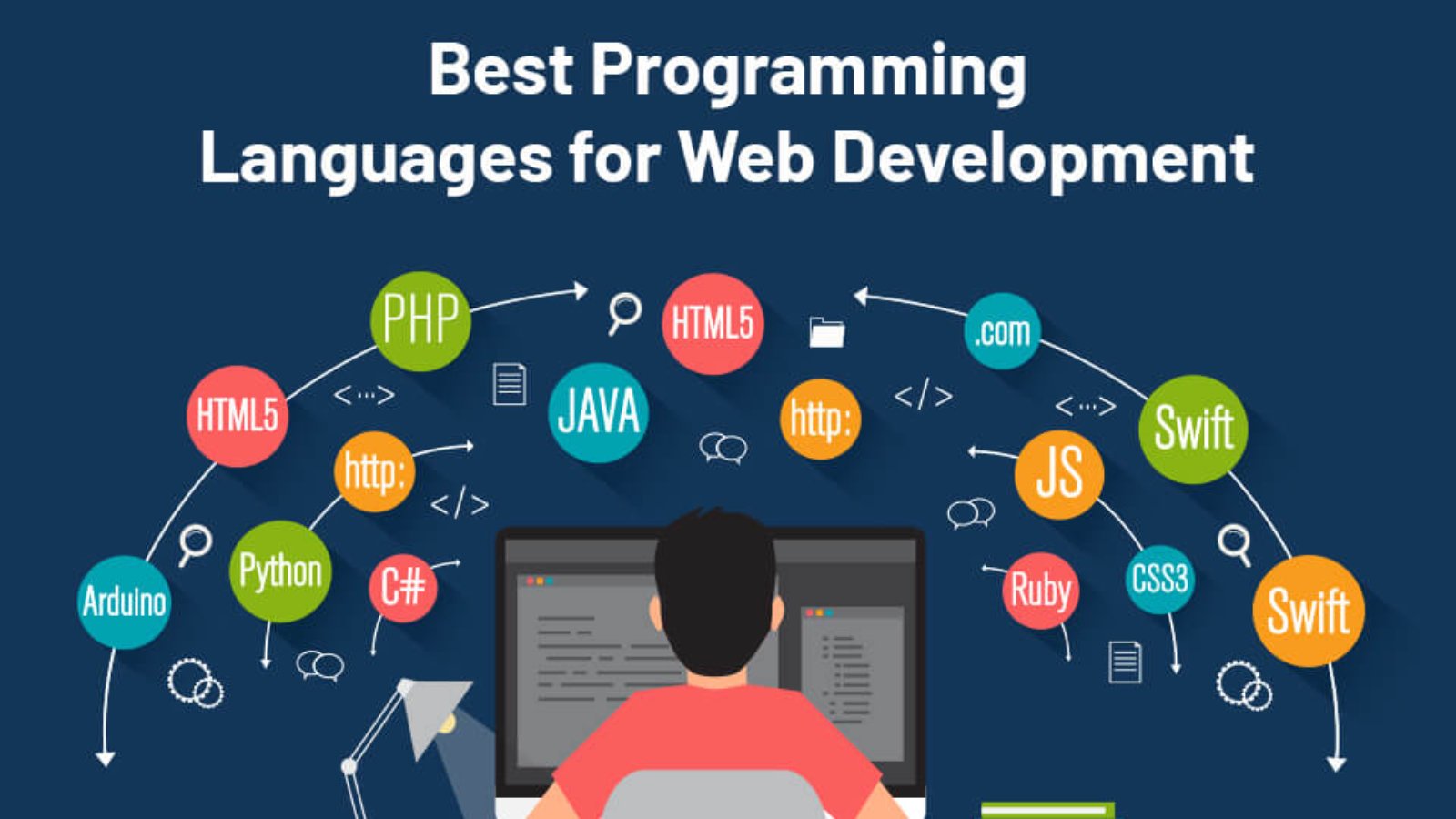Web development is one of the fastest-growing fields in the digital world. Whether you’re planning to build a business website, e-commerce store, or a full-stack application, choosing the right programming language is a key step. Each programming language comes with its own pros, cons, and best use cases.
Here’s a detailed look at the Top 5 Programming Languages for Web Development in 2025:
1. JavaScript
- JavaScript is the backbone of modern web development.
- It is widely used for front-end development and, with Node.js, also for back-end development.
- Popular frameworks like React, Angular, and Vue.js are built on JavaScript.
✅ Pros:
- Runs directly in the browser (no installation needed).
- Huge community support and regular updates.
- Wide range of frameworks and libraries for faster development.
- Can be used for both front-end and back-end (full-stack) development.
- High demand in the job market.
❌ Cons:
- Can be difficult for beginners due to complex syntax.
- Security issues if not handled properly.
- Different browser compatibility issues may arise.
2. Python
- Python is one of the easiest and most popular languages for beginners.
- It is used in web development, AI, data science, and automation.
- Frameworks like Django and Flask make web development faster and scalable.
✅ Pros:
- Simple and beginner-friendly syntax.
- Powerful libraries for web apps, AI, and machine learning.
- Strong community support and tutorials available.
- Highly versatile (used beyond web development).
- Great for startups and scalable projects.
❌ Cons:
- Slower execution speed compared to languages like Java or C++.
- Not the best choice for mobile app development.
- Uses more server resources for large applications.
3. PHP
- PHP has been a leading server-side language for more than two decades.
- It powers websites like WordPress, Facebook, and Wikipedia.
- Mostly used for backend development.
✅ Pros:
- Easy to learn and widely used.
- Huge ecosystem of frameworks like Laravel, CodeIgniter, Symfony.
- Affordable hosting options for PHP websites.
- Works seamlessly with databases like MySQL.
- Strong community and long-term stability.
❌ Cons:
- Considered outdated by some developers compared to modern frameworks.
- Not as fast as other languages like Node.js or Python.
- Can become messy in large projects if not structured properly.
4. Java
- Java is a robust and secure language used in enterprise-level web applications.
- Known for its portability (Write Once, Run Anywhere).
- Widely used for backend development with frameworks like Spring.
✅ Pros:
- Extremely reliable and stable.
- Best for enterprise-level and large-scale applications.
- Strong security features.
- Supports multithreading for handling multiple tasks efficiently.
- Huge developer community.
❌ Cons:
- Steeper learning curve for beginners.
- Slower compared to languages like JavaScript.
- Requires more memory and resources.
5. Ruby (with Ruby on Rails)
- Ruby is a dynamic, open-source language mostly used with the Ruby on Rails framework.
- It’s known for building scalable and fast applications quickly.
- Popular for startups and rapid prototyping.
✅ Pros:
- Developer-friendly and easy to write.
- Excellent for quick application development.
- Strong framework (Rails) with built-in tools.
- Active community and open-source libraries (gems).
- Good for MVP (Minimum Viable Product) development.
❌ Cons:
- Slower runtime compared to languages like Java or C++.
- Less popular today compared to JavaScript or Python.
- Hosting and deployment can be expensive.
📌 Final Thoughts
- JavaScript is best for front-end and full-stack web development.
- Python is great for beginners, AI-based projects, and scalable web apps.
- PHP is still a strong option for WordPress and affordable websites.
- Java is ideal for enterprise-level secure applications.
- Ruby is perfect for startups and rapid app development.
Choosing the right programming language depends on your career goals, project requirements, and learning preferences. If you’re just starting, Python or JavaScript is the best choice. For enterprise-level jobs, Java and PHP remain powerful.
❓ Frequently Asked Questions (FAQs)
Q1. Which programming language is best for beginners in web development?
- Python and JavaScript are the most beginner-friendly languages because of their simple syntax and high demand.
Q2. Is PHP still relevant in 2025 for web development?
- Yes, PHP is still widely used, especially for WordPress, Laravel, and affordable website development.
Q3. Which programming language has the highest job demand?
- JavaScript and Python are in the highest demand globally for both front-end and back-end roles.
Q4. Which is better: Java or Python for web development?
- Java is best for enterprise-level secure applications, while Python is best for startups, AI integration, and scalability.
Q5. Can I become a full-stack developer with just one language?
- With JavaScript, yes. Using Node.js for backend and React/Angular/Vue.js for frontend, you can become a full-stack developer.
Q6. Which programming language is best for freelancing?
- JavaScript, PHP, and Python are the most in-demand for freelancing projects.


Add a Comment